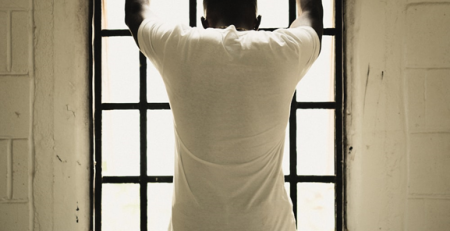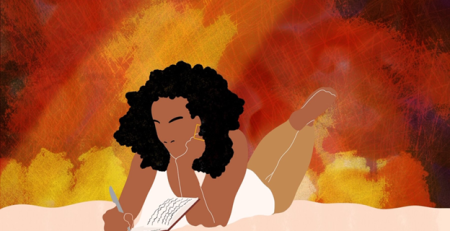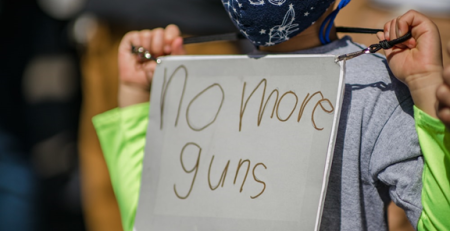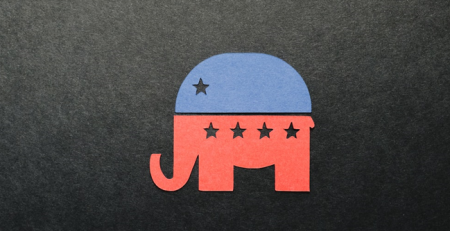What Have Feminists Done for Me?
It’s Women’s History Month and I’ve been seeing a lot of positive things about women making history in my feed. Women discovering that the sun is made of hydrogen, women charting stars, women writing the code that sent men to the moon, women leading the way in creating the COVID-19 vaccine. It has made me very proud. And yet. I know that there are women out there, black women out there, who think that feminism was just a bunch of white privileged women taking care of themselves, and not doing anything positive for women of color.
It is possible that because I am middle-class, the things that feminists fought for mean more to me. I don’t know. But I want to point some of them out.
- The word “feminism” was first used in association with women’s rights in 1914. So, in addition to being called suffragists, the women who won us the right to vote were feminists. Their efforts started in 1948, and Sojourner Truth was part of the effort in 1951. (By the way, the “Ain’t I A Woman” speech we grew up on was made up, and the speech she gave was that of a very articulate woman.) When the suffrage movement started, husbands could imprison their wives, beat their wives, take their earnings, take their inheritances, and take their children in the case of divorce. Feminists addressed all of these issues, but it took them nearly 150 years. You may see pictures of the women marching for their rights, but you may not know that these women were beaten and jailed for fighting the status quo. It took suffragists 70 years of effort just to get the right to vote in 1920. By comparison, black men got the right to vote in 1870, 5 years after slavery ended.
- Feminists got women the right to serve in the Armed Forces in 1948, and in combat in 2013. This has been an amazing job/career opportunity for thousands of women. It means access to pensions, access to education, access to training. My husband served in the military, and in his first fire fight, the men freaked out and the women stood fast and held their own. He never questions their place in the military, their ability to serve in combat units. It is very true that we do not have the same upper body strength, but with serious training, we make capable soldiers.
- Feminists addressed, and continue to address, the conversation about rape culture. Before the 1970’s, rape was very difficult to prove, women frequently were not believed, and there was no definition of consent. If for whatever reason, a woman did not put up a fight, and have the cuts and bruises to prove it, a man would not be found guilty. If a woman had any sexual history, it was evidence in court that she was not raped, and many women were afraid to come forward. Laws about women’s sexual history were barred from court proceedings in the 1970’s. Because of feminists, there are rape kits, and female police trained to deal with rape victims, and laws that punish sex offenders. Interestingly enough, it was black women who began the crusade against rape, fighting the frequent rape of black women by white men in the South. In the 1800’s, a white man raping a black woman was not a crime at all.
- Similarly, feminists addressed the conversation about sexual harassment, which was defined by the Equal Employment Opportunity Commission in 1980. It’s not just having the girlie posters removed, but more the touching, feeling, groping that was going on.
- Feminists got Title IX passed in 1972, opening the way for women to access undergraduate and graduate schools, especially medical school and law school, on an equal footing with men. Most people think of Title IX as an act that forced colleges and universities to support women’s athletics, but it was a lot more. Back in 1971, when introducing the bill, Senator Birch Bayh said, “we are all familiar with the stereotype [that] women [are] pretty things who go to college to find a husband, [and who] go on to graduate school because they want a more interesting husband, and finally marry, have children, and never work again. The desire of many schools not to waste a ‘man’s place’ on a woman stems from such stereotyped notions.
- Feminists made major gains when it came to women and money in 1974 with the Equal Credit Opportunity Act. Up until 1974, a woman needed a man to cosign on any loan, including a mortgage for a house. In 1974, for the first time, women could get credit in their own name.
- And lets talk about birth control. Margaret Sanger was a racist pig, but she coined the word, opened the first clinic, and got people talking about it. Efforts to control birth go back over 5000 years. Slave women used African medical knowledge to try to prevent pregnancies from white rapists in the 1800’s. African-American women were having their own conversations about birth control in 1918, and the National Council of Negro Women endorsed birth control in 1941. But when the Pill came available in 1960, it took 5 years before married women were legally allowed to use it or any other form of birth control, even though people had been talking about it for 45 years. The original Pill was too strong, and it was feminists who forced the research to change the hormonal dosages so that the Pill would be safe. But unmarried women did not have the legal right to use birth control until 1972.
- And then there is abortion. Abortion was normal in the US and the colonies up until 1821. Methods were published on how to do it, and the general limitation was that babies should not have quickened, i.e. started to move about, which happened at about 14-26 weeks, and was pretty much at the discretion of the woman. Women often helped other women have abortions, and sadly, the men were the ones who put a stop to it. Doctors started the “sanctity of life” movement, partly from more knowledge about fetal development, but also because they didn’t like the competition from unlicensed women abortionists. To give you an idea of how common it was, in the early 1800’s, between 15-35% of all pregnancies ended in abortion. However by 1900, every state in the US made abortion a felony. It took amazing effort to get this reversed, first, state by state in the early 1970’s, then with Roe v. Wade in 1973, turning over the law in 45 states. And now here we are in 2023, and abortion is illegal again in 13 states.
For me personally, having the right to vote, the right to a college education in a male-dominated field, the right to credit and the ability as a single woman to buy a home, the right to birth control, the right to an abortion, the right to work in a place where sexual harassment is illegal, these things are part of my existence as a black woman in America. I am a staunch feminist, and I appreciate the efforts of the women who came before me to secure these rights for me. Sadly, I know that there are men, and some women, in America who would love to see ALL of these rights taken away from me. So I know I must fight to ensure it doesn’t happen. Women who are willing to fight for women’s rights, in my mind, are feminists. Whether they like the label or not.











Comments (60)
I am truly thankful to the owner of this web site who has shared this fantastic piece of writing at at this place.
I really like reading through a post that can make men and women think. Also, thank you for allowing me to comment!
Very nice post and right to the point. I am not sure if this
is in fact the best place to ask but do you people
have any thoughts on where to get some professional
writers? Thx 🙂 Escape rooms
I was examining some of your articles on this
internet site and I believe this website is very informative!
Retain posting..
OROSPU ÇOCUGU
Medikamente-Preisvergleich: Deutschland vs. Niederlande Heunet Ciney Medikamente online
ohne Rezept
Adana Escort https://acerdn.com
OROSPU ÇOCUGU
Betnano Güncel Giriş Adresi,Betnano Sosyal Medya, Betnano Telegram Adresi, Betnano Gir Betnano Güncel Giriş Adresi
Acil elektrikçi olarak İstanbul şehrinin tüm bölgelerinde elektrik ile ilgili tüm acil durumlarda çalışıyoruz. Hemen arayın ve bir elektrikçi gönderelim.
Bayrampaşa Elektrikçi hizmeti sunan profesyoneller, şehrin enerji ihtiyacını karşılamada kilit bir rol oynamaktadır. Bu makalede, Bayrampaşa Elektrikçi önemi, görevleri, karşılaştıkları zorluklar ve sektördeki gelişmeler ele alınacaktır.
Silivri Elektrikçi , güvenlik protokollerine uygun olarak arızaları tespit eder ve güvenli bir şekilde onarım yapar.
Fatih Elektrikçi aynı zamanda acil durum müdahalelerinde de önemli bir rol oynarlar. Elektrik arızaları hayati öneme sahip olabilir ve bu nedenle hızlı ve etkili müdahale gerektirir. Elektrik kesintileri, işyerlerini ve evleri olumsuz etkileyebilir, bu yüzden ustaların profesyonel ve hızlı bir şekilde çözüm sunmaları büyük bir önem taşır.Sonuç olarak, Bölgede faaliyet gösteren ustalar, tarihle iç içe geçmiş bir çevrede modern enerji çözümleri sunma sorumluluğunu üstlenmektedir.
Profesyonel elektrikçiler, eğitimli ve deneyimli bir ekip oluştururlar. Elektrik sistemlerinin karmaşıklığına hakimdirler ve çeşitli elektrik arızalarını hızlı bir şekilde teşhis edip çözebilirler. Ev sahipleri ve işletmeler, acil elektrikçi hizmetlerini herhangi bir acil durumda hızlı bir şekilde çağırabilirler. 7/24 hizmet veren profesyonel firmalar, gece yarısı veya tatil günlerinde bile acil müdahale yapabilirler.
… [Trackback]
[…] Find More Information here on that Topic: afrobougieblues.com/what-have-feminists-done-for-me/ […]
… [Trackback]
[…] Read More Info here to that Topic: afrobougieblues.com/what-have-feminists-done-for-me/ […]
… [Trackback]
[…] Read More Info here to that Topic: afrobougieblues.com/what-have-feminists-done-for-me/ […]
Bahçelievler acil elektrikçi olarak kesintisiz hizmet vermeye devam ediyoruz. Acil elektrikçi ihtiyaçlarınızda arayabileceğiniz tek bir numara!
Arnavutköy acil elektrikçi olarak kesintisiz hizmet vermeye devam ediyoruz. Acil elektrikçi ihtiyaçlarınızda arayabileceğiniz tek bir numara!
Başakşehir acil elektrikçi olarak kesintisiz hizmet vermeye devam ediyoruz. Acil elektrikçi ihtiyaçlarınızda arayabileceğiniz tek bir numara!
Beşiktaş acil elektrikçi olarak kesintisiz hizmet vermeye devam ediyoruz. Acil elektrikçi ihtiyaçlarınızda arayabileceğiniz tek bir numara!
Ordu temizlik şirketi olarak ev, ofis, iş yeri, merdiven, bahçe temizliği gibi alanlarda temizlik hizmetleri veriyoruz.
I like the efforts you have put in this, regards for all the great content.
I really like reading through a post that can make men and women think. Also, thank you for allowing me to comment!
An outstanding share! I’ve just forwarded this onto a coworker who had been conducting a little homework on this. And he actually ordered me breakfast simply because I discovered it for him… lol. So allow me to reword this…. Thank YOU for the meal!! But yeah, thanx for spending some time to discuss this matter here on your website.
When I initially left a comment I seem to have clicked the -Notify me when new comments are added- checkbox and from now on whenever a comment is added I get four emails with the exact same comment. There has to be a way you are able to remove me from that service? Appreciate it.
May I just say what a comfort to find someone that genuinely understands what they’re talking about online. You definitely know how to bring a problem to light and make it important. A lot more people really need to read this and understand this side of your story. It’s surprising you are not more popular because you definitely have the gift.
Spot on with this write-up, I honestly think this amazing site needs much more attention. I’ll probably be returning to read through more, thanks for the advice!
Howdy! This article could not be written much better! Reading through this post reminds me of my previous roommate! He constantly kept talking about this. I most certainly will send this post to him. Fairly certain he will have a great read. Thank you for sharing!
Betvole Güncel Giriş Adresi Değişti, betnoel giriş
Betnoel Güncel Giriş Adresi Değişti, betnoel giriş
Betasus Güncel Giriş Adresi Değişti, betnoel giriş
Vbet Türkiye Güncel Giriş Adresi Değişti, vbet giriş
You’re so interesting! I don’t think I’ve read through a single thing like this before. So wonderful to find somebody with unique thoughts on this subject. Seriously.. many thanks for starting this up. This site is something that’s needed on the web, someone with a bit of originality.
You are so awesome! I don’t think I’ve read through a single thing like that before. So good to find someone with genuine thoughts on this topic. Really.. thank you for starting this up. This website is something that’s needed on the web, someone with a bit of originality.
Very good info. Lucky me I found your site by accident (stumbleupon). I’ve book-marked it for later!
I want to to thank you for this excellent read!! I certainly enjoyed every bit of it. I have you bookmarked to look at new things you post…
hocam gayet açıklayıcı bir yazı olmuş elinize emeğinize sağlık.
For the reason that the admin of this site is working, no uncertainty very quickly it will be renowned, due to its quality contents.
Kavbet Güncel Giriş Adresi Değişti, kavbet giriş
Sahabet Güncel Giriş Adresi Değişti, sahabet giriş
Tokyobet Güncel Giriş Adresi Değişti, tokyobet giriş
Setrabet Güncel Giriş Adresi Değişti, setrabet giriş
Excellent post. I’m dealing with a few of these issues as well..
naturally like your web site however you need to take a look at the spelling on several of your posts. A number of them are rife with spelling problems and I find it very bothersome to tell the truth on the other hand I will surely come again again.
basaribet Güncel Giriş Adresi Değişti, basaribet giriş
Betboo Güncel Giriş Adresi Değişti, betboo giriş
Onwin Güncel Giriş Adresi, onwin giriş
Markajbet Güncel Giriş Adresi Değişti, markajbet güncel adresi
Getirbet Güncel Giriş Adresi Değişti, getirbet guncel giris adresi
This was beautiful Admin. Thank you for your reflections.
Your style is so unique compared to other folks I’ve read stuff from. Thanks for posting when you’ve got the opportunity, Guess I’ll just book mark this site.
Next time I read a blog, I hope that it does not disappoint me just as much as this particular one. After all, Yes, it was my choice to read through, nonetheless I really believed you’d have something helpful to say. All I hear is a bunch of whining about something that you could possibly fix if you weren’t too busy searching for attention.
bahisnow Güncel Giriş Adresi Değişti, bahisnow güncel giriş adresi
Bahsegel Güncel Giriş Adresi Değişti, bahsegel giriş
Betgit Güncel Giriş Adresi, betgit giriş
Betcup Güncel Giriş Adresi Değişti, betcup guncel giris adresi
çok başarılı ve kaliteli bir makale olmuş güzellik sırlarım olarak teşekkür ederiz.
Betnano Güncel Giriş Adresi, betnano giriş